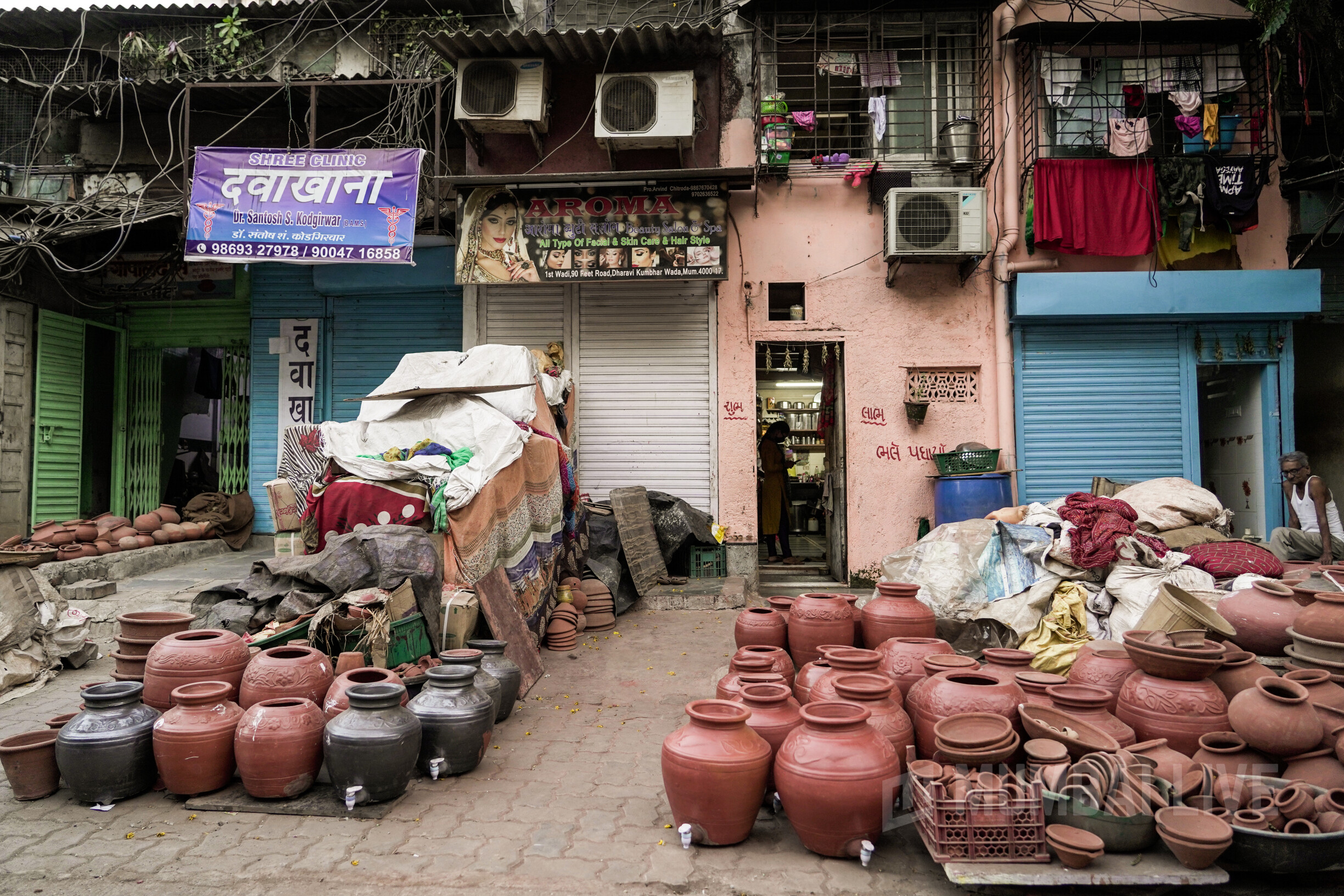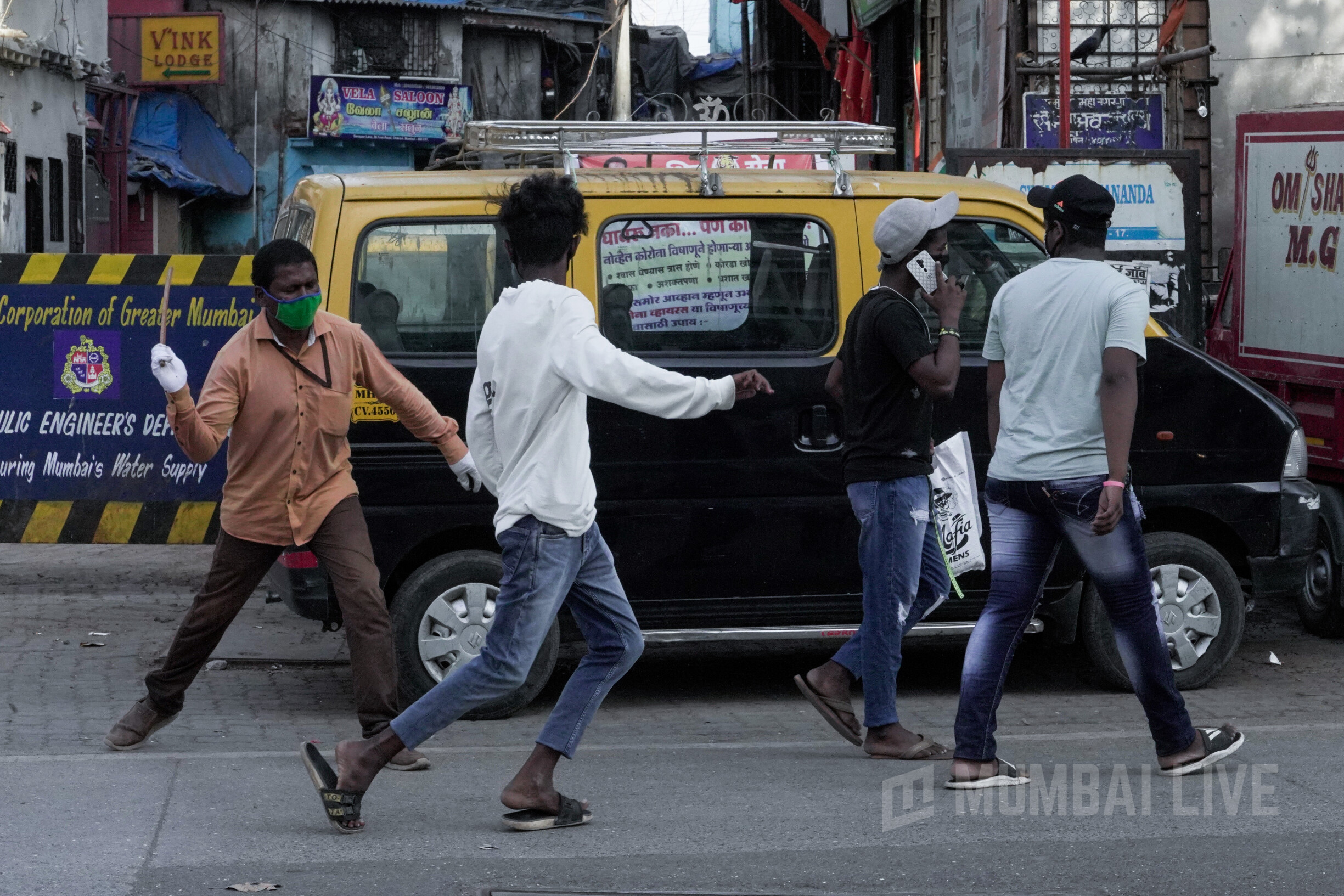
The COVID-19 lockdown has resulted in some severe restrictions across India. While it is a difficult time for the world at large, certain sections of society are particularly hit hard.
Dharavi in Mumbai is Asia's largest slum with close to 15 lakh people living in just 2.1 square kilometres. With a population density of over 700,000 per square kilometre, Dharavi is a super sensitive zone during the coronavirus pandemic. Social distancing is practically impossible and authorities have kept a close eye on developments here.
Tightly packed shanties, extremely poor sanitation, food shortage and a hard clampdown on movement adds to the misery of those living here. About 73% of people living here use public toilets. In other words, there's only 1 toilet for every 1450 residents of the locale. These facts and figures are ominous in times of a coronavirus pandemic.
One such example is the 100-year old pottery industry in Dharavi's Kumbhar Wada with 1500-2000 families dependent on it. "With transport shut to and fro Gujarat (from where the majority of the mud comes), the business has fully stopped", says decades-old pottery business owner Narotam Tank. These people don't have another livelihood to fall back on.

Another restaurant owner has reduced his per plate costs from Rs. 70 to Rs. 40 after the lockdown due to coronavirus began. He's also had to ask his staff to work alternate days. These are daily wage earners who are in dire need as a result of the drop in business. This, in turn, has affected the owner who also has to pay rent as there's no clarity from the government about rent being differed.
People here believe that there should have been a few days notice about the lockdown so they could return home as a large number of them come from across India. Now, labourers who survive on daily wages are left stranded without work and are confined to the small rooms of their workshops. There's no way for them to socially distance or self-isolate. Some people have complained about a lack of essential supplies too. A grocery shop owner claimed that APMCs (Agricultural Produce Market Committee) and markets too, don't have supplies and he has to source his produce from wholesalers.
The State Health and Family Welfare Minister Rajesh Tope has taken note of the situation and is acting on the current drawbacks. The Police are taking strict measures to make sure people don't roam the streets, although it is a tough ask in these areas.

On a positive note, there seems to be a strong resolve in the people here who are supporting each other. Leather goods manufacturer Abdul Mannan Shaikh explained how he and his employees are taking adequate measures and doing their best to stay indoors - "We keep the door closed and venture out only to buy vegetables. We wear masks, keep a distance from others and wash our hand and sanitize after getting home. Another glass workshop owner mentioned how the local mosque makes announcements about staying indoors.
Moreover, the business owners and workers are not abandoning each other in these tough times. The Kumbhar (potters) community is also delivering food essentials to 300-400 households daily. While most of us can still access basic needs, practice social distancing and not worry about our next meal, the people of Dharavi have troubled days ahead but are doing their best to keep their spirits up.
As of 10th April, in Dharavi, 22 people have tested positive for COVID-19 and there have been 3 deaths with over 3,000 residents of the slum under quarantine. Given the high risk, authorities have decided to screen each person living in these areas.





